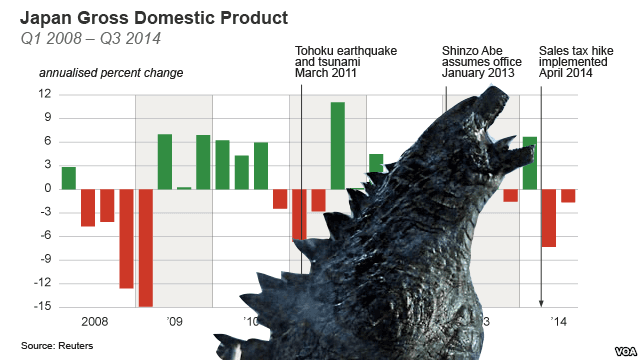Earlier this week, Prime Minister Shinzo Abe and Israeli Prime Minister Benjamin Netanyahu met in Tokyo, marking the first Israeli prime minister to visit Tokyo in six years. For the first time, the two countries discussed security cooperation -- agreeing to promote exchanges between their defense authorities at ministerial levels. This move is a big step for Japan and Israel, but it will be closely watched – and criticized – by Israel’s neighbors in the Middle East and Japan’s neighbors in East Asia.
Abe urged Netanyahu to resume the stalled peace talks with Palestine’s leadership, expressing his willingness to do what he can to help. Tokyo has solid ties with both Israel and the Palestinian territories. Japan provides Palestine with roughly $13.5 million in aid, the largest amount followed by the United States and European Union.
The two leaders also agreed to conduct industrial research, enhance investment, and increase cooperation in farm and tourism sectors (Israel recently lifted import restrictions it placed on Japanese products after the Fukushima crisis). Israeli leaders hope that developing closer economic ties will increase foreign direct investment -- there are currently no Japanese companies working closely with Israeli companies.
Japan-Israel relations have greatly improved in the last 30 years. From 1952 until the late 1980s, Israeli diplomats had difficulty improving ties with Tokyo. Japan’s reliance on Arab oil was considered to be the reason for the chilly relationship. And in the early years of their relationship following World War II, Japan wasn’t able to supply Israel with the three key items it needed: immigrants, arms, and money.
After Japan was admitted to the UN, Japan’s voting record on Arab-Israel issues were consistently against Israel. Japan even abstained from voting on General Assembly Resolution 3379 in 1975, which equated Zionism with racism. Japan was the only pro-Western democracy to abstain.
Japan’s pro-Arab foreign policy came to an end in the late 1980s, and relations with Israel began to warm. The first Japanese cabinet minister to visit Israel was Susuke Uno in 1988 (although he spent a large chunk of his trip in a Palestinian refugee camp). Israel Foreign Minister Moshe Agens visited Japan in 1989, and Yasser Arafat visit the year after. In the early 1990s, Tel Aviv University subsequently launched its celebrated Japanese studies program, further spreading Japanese culture and history to the people of Israel.
After Israel established diplomatic relations with China and India in 1992, Japanese diplomats realized they had to step up their cooperation with Israel. Since then, there have been a number of high level visits. President Chaim Herzog attended Emperor Hirohito’s funeral and Emperor Akihito’s coronation. Trade numbers have also risen exponentially, as Japanese cars sold in Israel rise to record levels. And the government in Israel is pursuing aggressive economic policies that encourage Israeli exports to Japan.
But even though diplomatic relations have improved significantly and bilateral trade between the two countries total more than $3 billion, Japanese citizens haven’t fully warmed up to Israel. According to a 2012 BBC Country Rating Poll, only 3% of Japanese surveyed think that Israel has a positive influence on the world, and 45% think they have a negative impact. Those who answered said that they disliked Israel’s “use of force.”
That being said, the average Japanese person isn’t familiar with Israel and Jewish people. An effort by both governments to increase tourism and cultural understanding could fix this.
After the join meeting earlier this week, Tokyo and Jerusalem are devoted to increasing security cooperation and deepening business ties. Abe and Netanyahu see eye-to-eye on a lot of important issues, and it is likely that the relationship will further flourish in the coming years.
Originally published in Izakaya Politics.


